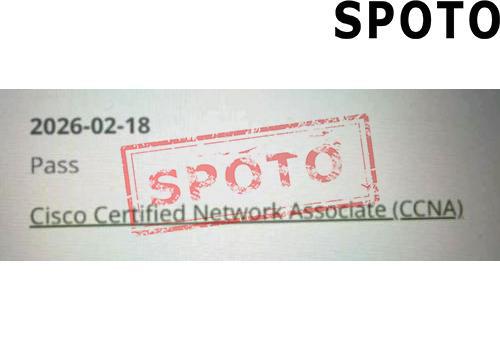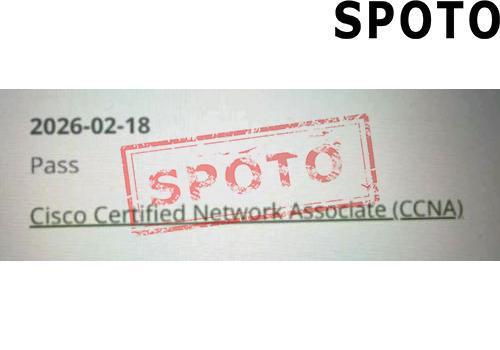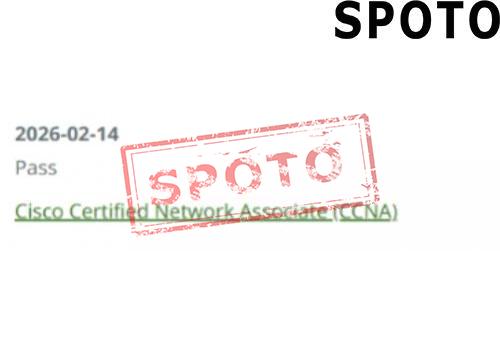
Table of Contents
Enterprise networks are expanding rapidly due to people's growing reliance on technology and cloud computing. Business networks are growing in terms of scope, not only in size. While businesses use technology to their advantage in many ways, there are also specific difficulties and disadvantages. Any network management hiccup can have a significant impact on your company. As the industry's top supplier of business network solutions, Cisco provides goods and services that make network administration effective and risk-free. Businesses may teach their staff to prevent, manage, and reduce setbacks while preventing significant loss by utilizing the Cisco training. Let's explore how Cisco training can assist IT professionals in preventing some of the most common network management setbacks.
Understanding the Landscape of Network Management Challenges
- Network Downtime:
Network outages can lead to substantial business losses. They not only disrupt operations but can also lead to lost revenues and customer trust.
- Security Vulnerabilities:
In the age of cyber threats, a compromised network can have disastrous implications, including data theft, financial losses, and reputational damage.
- Network configuration problems:
With rising network complexity, network configuration gets increasingly difficult. A network's performance gets jeopardized as there are too many devices and applications connecting to it, which also raises the possibility of setup problems. IT teams must establish appropriate regulations and work to keep the firewalls up to date. The application of the policies should be automated because doing it might result in errors and setbacks.
- Scalability Concerns:
As businesses grow, their networks must evolve to accommodate increased traffic and complexity. Failure to scale efficiently can result in performance bottlenecks.
- Lack of Visibility:
Without clear visibility into network performance and traffic patterns, it becomes problematic to optimize the network and anticipate potential problems.
- Security setbacks:
Network security is the most significant problem that businesses confront today. For network administrators and IT teams, it is the top priority. It becomes hard to protect user and network data. Network security must be built out in layers by organizations. The amount of assaults on networks is increasing as networks get more complicated. Although encryption is the first step in securing a network, it interferes with the effectiveness of monitoring network activity. Ensuring that your security systems all function together without affecting network performance requires a greater degree of skill.
- Increasing Network Cost:
Many businesses underestimate this setback until it deals them a significant blow. A network's cost increases as it expands. There are some problems and contradictions that, if not fixed right away, may develop over time. Ensuring the network can accommodate the growing demand for IT applications and services that demand a more resilient network is essential. The network must be expandable while staying within the allocated budget.
Harnessing the Power of Cisco Training
- Comprehensive Curriculum:
Cisco's training programs are designed to cover all aspects of network management. From understanding the basics of routing and switching to mastering advanced security protocols, Cisco leaves no stone unturned.
- Real-world Scenarios:
Cisco's lab-based training approach allows participants to encounter real-world challenges. This hands-on experience ensures that they can tackle actual network issues confidently and efficiently.
- Emphasis on Security:
Given the rising threat of cyberattacks, Cisco places significant emphasis on network security. Trainees to be educated on the latest security threats, vulnerabilities, and best practices to safeguard networks.
- Configuration Best Practices:
A significant portion of Cisco's training revolves around equipment configuration, ensuring that professionals are well-versed in setting up devices correctly and minimizing the chances of configuration errors.
- Network Analysis Tools:
Cisco training introduces professionals to a suite of network analysis and monitoring tools. These tools offer insights into network performance, allowing managers to optimize their networks proactively.
- Continuous Learning:
The technological landscape is ever-evolving. Cisco recognizes this and regularly updates its curriculum, ensuring its certified professionals are always abreast of the latest developments.
Your IT staff may be better equipped to prevent and handle these frequent failures after receiving Cisco training in network administration. Here are the details you need to know- about Cisco's solution to your problems.
Managing Your Network's Setbacks:
Network performance and efficiency optimizers are among many network management solutions by Cisco. The network stability and availability will be improved with proper product usage, without sacrificing scalability. The objective is to assist businesses in achieving their performance and productivity goals.
Some of the massive components of the best network management systems are as follows:
- Real-time reporting enables efficient capacity planning and trend tracking, enabling peak performance.
- Network managers may monitor weaknesses and guarantee improved network security by using proactive monitoring and automated troubleshooting.
- User-friendly management solutions facilitate the automation of time-consuming day-to-day chores.
- Network security is improved further by showing devices that are about to expire.
- Adopting new technology is made simpler by scalability and quick deployment, which prevent significant alterations to the current architecture.
Cisco offers a full suite of tools for efficient network administration and ongoing network monitoring. With the best training, IT staff may acquire the skills necessary to use these tools.
Reaping the Benefits of Proactive Network Management
By preventing common network management setbacks, businesses can enjoy a multitude of benefits:
- Enhanced Uptime:
By minimizing the risk of network outages, businesses can ensure continuity, thereby serving their customers better and avoiding potential revenue losses.
- Robust Security Posture:
With trained professionals who understand the nuances of network security, businesses can fortify their defenses against cyber threats.
- Optimized Network Performance:
Proper configuration and regular network analysis ensure that the network operates at its peak, leading to better application performance and user experiences.
- Scalability:
With an understanding of network growth strategies, businesses can seamlessly scale their operations without facing performance bottlenecks.
- Cost Efficiency:
Proactive network management means fewer crises and reduced downtime, leading to significant cost savings in the long run.
Conclusion
In the realm of network management, prevention is undoubtedly better than cure. Through Cisco training, IT professionals get equipped with the skills and knowledge to anticipate, mitigate, and address common network challenges. By investing in such Cisco training, businesses not only future-proof their networks but also ensure that they operate at their optimal capacity, driving growth and ensuring security in an increasingly digital world.











